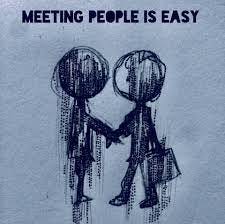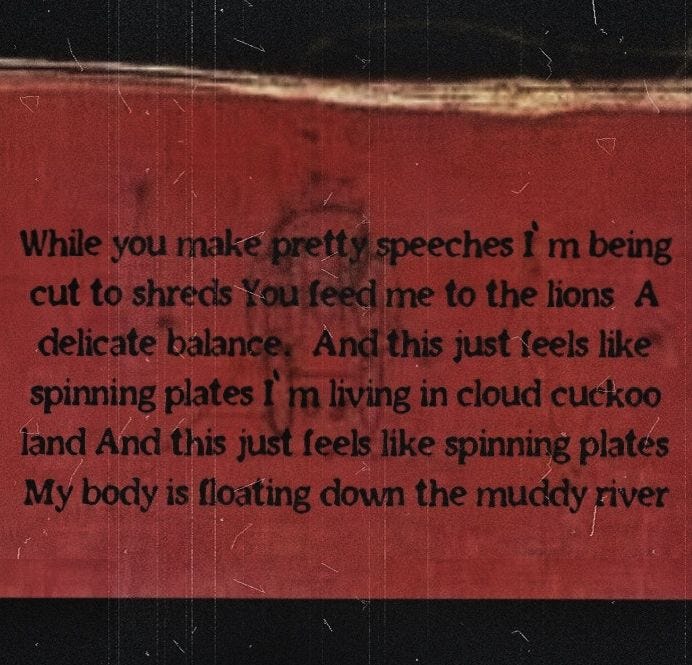Everything In Its Right Place
In the old days (last year), this time of year was what we called “staffing season.” During staffing season, writers who believed that TV had a future would spend most of their days in their cars, crossing town from Santa Monica to Burbank to Culver City to whatever you call the No Man’s Land where the Fox lot is, accepting water bottles for their efforts.
If you were lucky, you were going in to meet with a showrunner who had a series ordered for that fall. (Though Acker and I had an inordinate number of meetings with showrunners whose shows hadn’t yet been picked up, who would “love to” staff us, and whose shows were ultimately rejected).
More likely, you were meeting with execs and, as Pose creator Steven Canals put it “doing the dog and pony show,” in the hope that they’d remember that they liked you when it was time to suggest writers to showrunners who already had a long list of writers they hoped to work with.
Now, “staffing season” is both year-round and non-existent, so what we mostly do is meet execs in what are called “general meetings.”
Fitter Happier
General meetings are, according to Blindspot and Quantum Leap creator Martin Gero, “basically where you go and you sit in a room with somebody and you try to find any sort of common ground. Like, real estate or, like, ‘geez, couches,’ or ‘boys are the worst’. And then at the end of the meeting they're like, ‘oh you seem nice’, and you're like, ‘oh you seem nice’, and then you never see that person again for the rest of your life.”
“The town runs on generals,” says Bryan Seabury, Executive Vice President of Drama Development at CBS Studios. And while “there’s probably not a job when you take the general… three months from that, when a job opens up, [the exec] goes, ‘Oh, I took that general with that person. I should have her back in’.”
Speaking to what the hopeful writer’s approach should be, Bryan says he and other execs will generally remember people with whom they’ve had generals, people who pop up in his social media or otherwise keep the relationship alive, as opposed to the writer saying “there’s a job opening now, so I’ll go for it.” Rather, he says, “you kind of need to be going for it all the time.”
The purpose of a general meeting is to make a good impression. Show the execs that you’re someone they want to work with down the line. That that’ll be fun or productive or beneficial to everyone.
And I would urge you to deploy this strategy to all meetings, not just those with execs. A showrunner meeting is usually for a specific job, so the approach to those are a bit different (and I’ll talk about that in a future newsletter), but right now, many of you are out there having coffee with writers you admire or want to someday work with, or agents or managers, or even just peers. Or you’re coming to our LA meet-up next week and want to make a good impression.
Optimistic
“If it’s with a network or a studio, you just have to be as charming as hell. That’s it,” says Bones creator Hart Hanson. “Because they come to us [showrunners] and say, ‘I met with so-and-so, and she’s wonderful in the room’. Be scintillating. Amuse them. Make them laugh.”
“You’re not there to sell your script at that moment. If they wanted to buy it, they would have bought it when they finished reading it,” adds Jose Molina (Legacies; The Tick), who was on the same panel as Hart. “Just give good meeting,”
These somewhat undirected meetings should not be completely improvised. There’s an opportunity here to talk about yourself in a very specific way. Marc Bernardin (Star Trek: Picard; Castle Rock) thinks “general meetings are awesome":
Especially when you're younger. It's like, in stand-up, you've got to get your set right; you get your “hot ten” A general meeting is your “hot 45.”
Like, “here's here's my narrative, here's where I came from, Here's the career I've had before. Now, here's how that career was applicable to what you want to hire me for in the future.”
You need to prepare for these meetings, and you need to be prepared to have a conversation like a person.
“I know people who go on those generals that haven't quite had a thing that represents them completely. And I think that those are the meetings that are a bit of a mess,” says The L Word: Generation Q creator Marja-Lewis Ryan, who approached generals, especially early on, as just a way to meet like-minded people. She suggests “staying curious about who that person is and why that person's here and what that person wants to make. And then, if she and I want to make that the same thing is cool.”
I love this additional piece of advice that Ryan received:
One of my my managers told me early on that these meetings were just a way, when I did make it, for execs to be like, “I know her.” And I really appreciated that because I was like, I'm just giving them permission to say that they know me. That’s been oddly useful.
Anyone Can Play Guitar
Here comes a long quote that is very worth your time to read. See you on the other side of it.
Jon Spaihts, screenwriter of Dune, Prometheus, and more, has a great perspective on general meetings. “You have to understand that it is a long game, especially when you're a baby writer with very little capital. You are going to spend some time beating the street and building relationships.”
He continues:
When I first graduated from college, there were ways in which I was aware of being unsophisticated, and I wanted to become more sophisticated about things like economics, about certain aspects of the news that I had never tracked. So I made myself read The Economist and The New York Times every week, every day, including the sections that had been opaque to me for a long time. And it was hard going. It was a slog because those words were ciphers to me, those sentences were meaningless, and I would push my head through them in the early going.
But over time you develop landmarks. You learn this idea which leads to the next idea, which leads to the next idea. You begin to recognize names that repeat, patterns that repeat. And before long you have a knowledge base.
Something similar happens in Hollywood. You come to town and people ask you who you met when you went to a company, and they expect you to remember the names. You're new, so of course you can't. They're all just syllables. There's a lot to learn about the anatomy of the industry and the makers of film.
But you go to a couple of general meetings a day for six months or a year, and you start to run into people again. You start to recognize names. You can put faces to names and attach people to companies, and you start to develop a map of what's actually happening. You start to see the layout of how things get written, sold, and made.
Understand that a lot of what you're doing when you first get to town is getting acculturated, learning the ropes, becoming familiar to people, and circulating. The industry has chattering classes: development executives and producers and agents and managers talk all day. They talk to each other. They talk amongst themselves. They read things and talk about what they read.
It was not unusual for me to go have a general meeting at one company in the morning, go grab lunch some place, roll into an afternoon general meeting, and the person behind the desk says, “so you met with Dancy this morning.” People just chat. Word gets around, and a lot of what you're doing when you first come to town is merely making a name for yourself.
I spent a year being funny and charming in rooms, and riffing on story, and talking about movies. And honestly, there are relationships that are very important in my career now that were born in those casual conversations, that were people I hit it off with. We had common tastes. We had an inspiring conversation that left the banal, job-interview space and went to this great film buff space, and we talked story and photography and sci fi and connected.
Importantly, Spaihts wasn’t asking for a job. He wasn’t digging for information. He was connecting on a personal level.
Fresh Meet
So let’s do that! Come out for our LA meet up next week and show me you can be a person and have a conversation and meet your peers and then all of you will become wildly successful in the next decade and take care of me in my dotage.
Info is below for all of you paid subscribers. Want to join us next week? Want to also attend the monthly Zoom Q&As with pro writers where you ask the questions? Our next one is Sunday, March 26, with Matt Nix, creator of Burn Notice and True Lies.
It’s easy to be a part of it all. Just upgrade your subscription below:
Keep reading with a 7-day free trial
Subscribe to Re:Writing to keep reading this post and get 7 days of free access to the full post archives.






